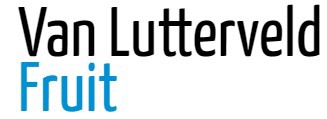In the Netherlands, apple cultivation has had several challenging years. But Dirk Jan van Lutterveld sees a notable shift this year. "Elstar and Jonagold supplies have decreased so much that we can finally sell them at interesting prices this season," begins the Dutch top fruit grower.
"That's mainly because, after the difficult years, many growers have switched to cultivating pears, or club varieties have replaced Elstars or Jonagolds. However, club varieties are in a different sales segment than, for example, Elstars. They compete more with imported fruit."
"They are often slightly sweeter apples, so are in a different flavor segment, too. Elstar volumes have, thus, dropped significantly, which has balanced the market. This season's price can compensate for the cost increases of recent years. This supply/demand balance generally benefits fruit cultivation in the Netherlands," says Dirk Jan.

This is a trend that, according to Dirk Jan, has been long overdue but is more than justified. "The situation appears to be changing. Where varieties like Elstar used to be seen as less, the market seems to appreciate them again. Elstar remains the absolute number one in the Netherlands in sales."
"It doesn't fall short in taste compared to the club varieties either. Why should it then cost less in the supermarket? Those prices have been lower for a long time due to oversupply. But that's leveled out, so prices shouldn't be lower. We'll have to see how it goes in the coming years, but that realization appears to have hit the chain," Dirk Jan explains.
The experienced grower, who sells most of his top fruit through a local wholesaler, adds that he expects prices to hold up in the second half of the season. "The market was good, so we could keep up with the less-long-lasting quality fruit. As long as everyone keeps their head and closely monitors their product stocks, we'll keep up with volumes and demand for the rest of the season. Only unexpected risks can ruin such an excellent season, but I don't see that happening any time soon."
Investing in technology
Those in the pear market have been experiencing this situation for a while. "That's been good for some time and continues to look good. There's no reason to clear out everything all at once or wait a long time. The market and prices are good. Now's the chance to make a generally good year by smoothly following the market," says Van Lutterveld.
The good situation means Dirk Jan sees more and more growers deciding to invest in the future. "I'm a Gotrack autonomous steering system agent. After several good years in pears and this year also in apples, growers have a noticeably higher investment drive. That's good."
"By investing in technology, you can future-proof your company. Now that there are no marketing worries, people are more likely to choose Gotrack. Labor is still scarce, and user feedback is good. Then it becomes very attractive for me to consider a good investment, too. I, thus, see that growing in the coming time," Dirk Jan points out.

Cultivation almost impossible
Still, Dutch top fruit cultivation faces challenges. The grower primarily sees these in crop protection product use. "As rosy as sales currently look, cultivation remains complicated. Weather extremes are becoming more evident, and dealing with them is becoming increasingly difficult. At present, we're all fighting to keep it workable, but the range of materials is becoming more and more limited. We lead the way regarding sustainability."
"Yet, restrictions make cultivation almost impossible. I understand the need for solutions, but too much is falling away. We must keep alternatives. If overseas growers have everything available and we have nearly nothing, you simply cannot keep competing. I don't understand why that's not being seen. We want to participate, but it has to be possible. We all need to consider this closely," Dirk Jan concludes.
For more information:
Dirk Jan van Lutterveld
Van Lutterveld Fruit
22 Boveneindse Street
4041 EJ, Kesteren, NL
[email protected]
www.lutterveldfruit.nl










